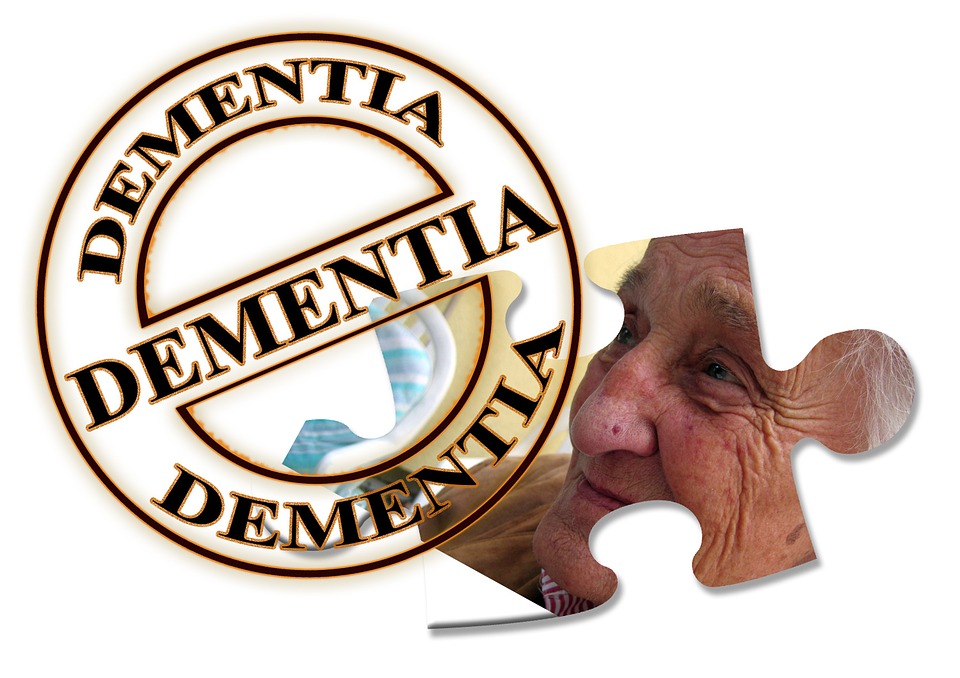
What is Dementia?
Dementia isn’t a specific disease process, but more of a syndrome that describes a group of symptoms related to a loss of brain function.
Dementia occurs through different processes that ultimately are leading to groups of neurons (brain cells) dying.
When enough neurons die, symptoms occur.
The area(s) of cell death determine what symptoms a person may get.
Types of Dementia
The most common form of progressive dementia is Alzheimer’s disease.
Other forms of progressive dementia include… Vascular dementia, Lewy body dementia, Frontotemporal dementia, and mixed dementia.
Some dementias and dementia-like processes can be caused from brain injury, drugs, medications, vitamin deficiencies, hormonal problems (like blood sugar dysregulation and thyroid disease), infections, neurological autoimmunity, Parkinson’s disease, other degenerative processes, and more.
Symptoms of Dementia
The symptoms vary depending on where the damage is occurring.
Common Symptoms Are…
- Personality changes including irritability.
- Mood problems like depression and anxiety.
- Inappropriate behavior.
- Memory loss. This is a very common early indicator of a problem.
- Problems finding words when talking to someone.
- Difficulty with problem solving and performing complex tasks.
- Difficulty planning and organizing.
- Problems with coordination.
- Confusion and disorientation.
Risk Factors For Dementia
There are several known risk factors for dementia.
- Genetic susceptibility. Your genes may put you at a greater potential risk.
- Aging. Unfortunately this is inevitable, although as we’ll see there are things that reduce your risks.
- Heavy alcohol use.
- Cardiovascular risk factors including high blood pressure, atherosclerosis, and obesity.
- Diabetes is associated with a substantially increased risk and failing to improve diabetes particularly through lifestyle increases the risk.
- Smoking.
- Sleep apnea which appears to be related to losses of oxygen, but also the process causing the sleep apnea may be related to developing dementia also.
Reducing Risks Of Dementia
Want to stave off dementia?
Here’s how you can have a massive impact during your midlife according to recent research…
Engaging in mental tasks that challenge us (like learning and problem solving) and physical activities associated with a huge reduction in dementia risk 44 years later.
Work your body and your mind to strengthen it against the potentially devastating diseases of dementia for which there are no decent medical treatments.
Certainly don’t smoke. This is associated with dementia and so many other devastating diseases.
Get outside in the sun and possibly supplement with Vitamin D3 to optimize Vitamin D levels.
Low levels of Vitamin D are associated with a very substantially increased risk of developing dementia.
We also know that higher blood sugar/insulin/A1C is very highly related to risk of Alzheimer’s disease (and so many other very serious problems).
Get your blood sugar down by eliminating sugar and all the highly processed junk foods (think grains). Higher blood sugar, even in the absence of diabetes increases dementia risks.
Combining diet and exercise is a great way to improve your health and reduce risks of so many serious health problems.
What you do today matters, a lot!
Don’t wait for the early signs of dementia that mean large numbers of neurons have already died off before doing something to change course.
Prevention is the only real way to make a big difference and this is as true with dementia as it is with so many other devastating diseases which would also be avoided by adopting the ideas mentioned above.
References:
https://www.medpagetoday.com/neurology/dementia/78131
https://www.ncbi.nlm.nih.gov/pmc/articles/PMC4153851/
https://www.neurology.org/content/77/12/1126.short?sid=ec77392f-2ec8-406d-a790-a396a0c9c932
https://www.neurology.org/content/52/5/971.short?sid=ec77392f-2ec8-406d-a790-a396a0c9c932
https://www.neurology.org/content/81/20/1746.short?sid=c02b98f1-a325-456e-bf4f-af5a8c8caafa
https://www.ncbi.nlm.nih.gov/pmc/articles/PMC5769999/
https://www.mdedge.com/clinicianreviews/article/102708/diabetes/easd-high-a1c-linked-elevated-dementia-risk-patients-t2dm/page/0/1
https://www.ncbi.nlm.nih.gov/pmc/articles/PMC4085321/
https://www.ncbi.nlm.nih.gov/pmc/articles/PMC3955123/
 Protected by Patchstack
Protected by Patchstack
Leave a Reply